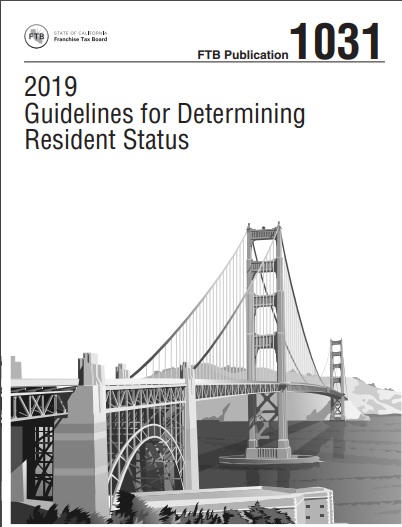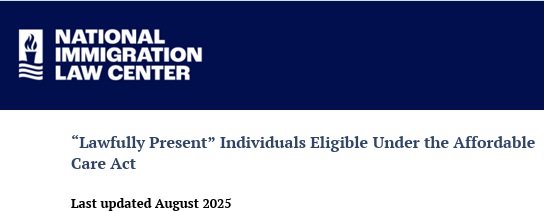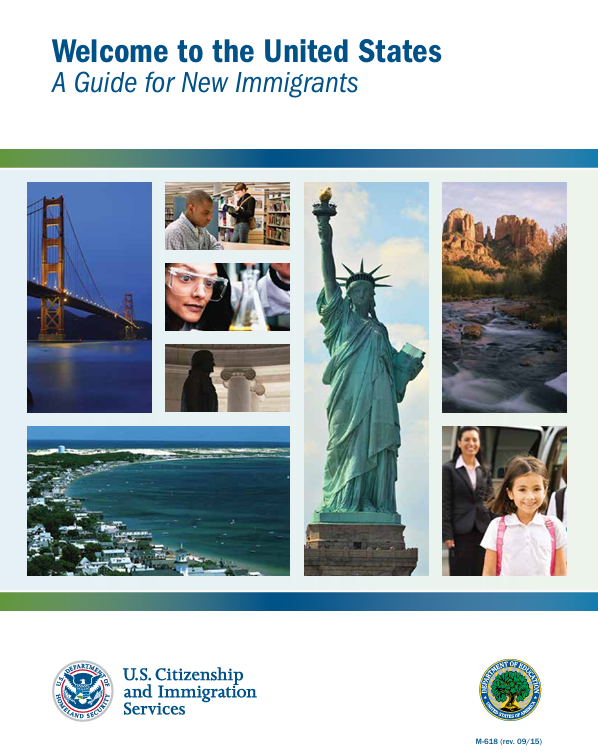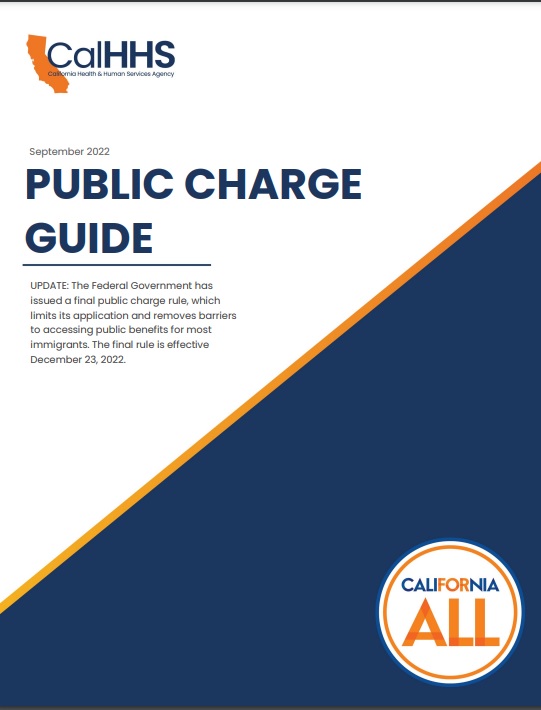- Covered CA – Accepted Documents to prove lawful status
- Get Instant Quotes
- Appoint us as your broker, no extra charge, the Insurance Company will pay us for our time and expertise.
You must be Lawfully present – (check this entire page for information and details of what “lawful presence” means), to get tax credits– Subsidies in Covered CA.
If you want coverage without subsidies, you can purchase direct from an Insurance Company, no extra charge for us to help you with that, with the only requirement being that you reside in CA, even if you don’t have legal status. You might also check out International Travel Policies.
There is no charge for our help, when you appoint us as your agent by using the enrollment links in this website or using “find local help” in the upper right hand portion of the Covered CA Online Application.
We are not immigration attorney’s and can’t help you with that. If you have the documents, proving lawful status, we can help you get health insurance.
Learn More ===>
- Covered CA – Accepted Documents to prove lawful status
- 300,000 Lawfully Present Immigrants Will Be Newly Ineligible for Health Care Help in This Open Enrollment Period National Immigration Law Center
- CA Healthcare Advocates Newsletter on various issues
- How to find receipt # on green card
- CA Mandate Penalty?
- FAQ Lawful Status from Covered CA
- Covered CA Information for Immigrants
Medi Cal Immigrant Eligibility FAQ’s
dhcs.ca.gov
All our Health plans are Guaranteed Issue with No Pre X Clause
Instant Quote & Subsidy #Calculation
There is No charge for our complementary services, we are paid by the Insurance Company.
- Our Quote Engine Takes all the complexity out of using pencil and paper to figure out the premiums per the Obamacare/ACA rules under CFR §1.36B-3 *
- We are authorized Brokers for Dental, Vision & Covered CA get instant quotes direct and in Covered CA with subsidy calculation for:
- Watch our 10 minute VIDEO that explains everything about getting a quote
CA Residency Guidelines #FTB1031 2023
- See our webpage on lawful presence & public charge
- A California resident is one who is in California for other than a temporary or transitory purpose; or Domiciled in California, but outside California for a temporary or transitory purpose. (ftb.ca.gov).
-
In using these factors, it is the strength of your ties and closest connections not just the number of ties, that determines your residency (ftb.ca.gov/)
More detail on lawful presence

- “Lawfully Present” Individuals Eligible Under the Affordable Care Act National Immigration Law Center 8/2025
- Tax Guide for Aliens Publication # 519
- .chcf.org language-other-than-english-listening-complex-needs/
- How Will Making English the Official Language of the U.S. Affect Patients with Limited English Proficiency? Commonwealth Fund 12/2025 *
- New visa rules may bar obese people LA Times
- Immigrants With Health Conditions May Be Denied Visas Under New Trump Administration Guidance KFF.org 11/6/2025
- Special Enrollment when it’s not Open Enrollment, like a change in lawful presence status
- List of Individuals with “Lawfully Present” Status for Eligibility and Enrollment Purposes in the Covered CA Exchange Individual Market
- Lawyers Guide to determine citizenship in Criminal Cases
- Federal 8 U.S. Code § 1641 – Definitions for Medi Cal – Medicaid
- Overview of Immigrant Eligibility for Federal Programs – National Immigration Law Center
- THE AFFORDABLE CARE ACT: COVERAGE IMPLICATIONS AND ISSUES FOR IMMIGRANT FAMILIES
- Chart comparing Immigration and Covered CA with Subsidies – Western Poverty Law
- USCIS Policy Manual
- Employers should prepare for Immigration Raids
- Employers Face Looming Immigration Changes Under Trump Administration
Experts warn of stricter enforcement, slower processing, and visa restrictions - Judge orders RFK Jr.’s health department to stop sharing Medicaid data with deportation officials LA Times 8/14/2025
- Employers Face Looming Immigration Changes Under Trump Administration
- Trump confirms deportation strategy will include national emergency declaration and military
- Trump ally explains how mass deportations could work
- organizations on this list are able to provide assistance regarding public charge.
- Employers Face Looming Immigration Changes Under Trump Administration Learn More >>> SHRM
Technical and Research Resources
- Covered CA Q & A on Immigration Status
- Health Care.gov on immigrants
- Coverage and Issues for Immigrant Families – aspe.hhs.gov (pdf)
- Attorney Guide to determine Citizen Status in Criminal Cases
- Covered CA Webinar on verification of residency Proposed Regulations 5.2013
- immigration policy.org
- What if you are not lawfully present and you try to apply for coverage? Will it be reported to INS?
- FAQ’s Kaiser Foundation kff.org/immigrants
- New Obama Immigration may allow those to get Medi-Cal californiahealthline.org/2014/11/21
- 4 page – Immigration Status and Covered Ca hbex.coveredca.com
- For purposes of this part the following definitions apply:
- Creditable coverage means coverage of an individual as defined in section 2701(c)(1) of the Public Health Service Act as of March 23, 2010 and 45 CFR 146.113(a)(1).
- Enrollee means an individual receiving coverage from a PCIP established under this section.
8 US Code §1641 Definitions
Consumer Resources
- Citizenship & Immigration Services uscis.gov
- Publication 519 US Tax Guide 1040 for Aliens
- What you need to know – Covered CA 1 page pdf
- nilc.org/lawfullypresent/ National Immigration Law Center
- Western Poverty Law Center – Guide for Low Income CA to get coverage
- Here are samples of acceptable documents that Covered CA will accept as proof ♦
- If you do NOT qualify, you can try an International Policy
- Covered CA Application ♦ 7 Page Worksheet to complete ONLINE Application
- Covered CA letter to CMS on new rules..?? 4/11/2025
Trump – Big Beautiful Bill Changes
Trump Big Beautiful Bill Changes
- Cuts for Lawfully Present Immigrants
- The GOP plan could cause at least hundreds of thousands of immigrants who are lawfully present — including asylum-seekers, victims of trafficking, and refugees — to lose their ACA marketplace coverage by cutting off the subsidies that make premiums affordable. The restriction won’t apply to green-card holders.
- Because the immigrants who will lose subsidies under the legislation tend to be younger than the overall U.S. population, their exit would leave an older, sicker, and costlier population of marketplace enrollees, further pushing up marketplace premiums, according to marketplace directors in California, Maryland, and Massachusetts and health analysts.
- Taking health care access away from immigrants living in the country legally “will do irreparable harm to individuals we have promised to protect and impose unnecessary costs on local systems already under strain,” John Slocum, executive director of Refugee Council USA, an advocacy group, said in a statement.
- The bill reflects the Trump administration’s restrictive approach to immigration. But because it ran afoul of Senate rules, the legislation doesn’t include a proposal that would have reduced federal Medicaid payments to states such as California that use their own money to cover immigrants without legal status. KFF * Politico.com *
- Megabill hits health care for immigrants, including legal ones, hard
- HHS rescinds undocumented immigrant access to federal health benefits
See our main webpage on Medi Cal Information
H I S T O R I C A L
#DACA cannot get Covered CA
DACA Deferred Action for Childhood Arrivals (DACA)

- DACA No longer available for Covered CA Learn More >>>> Covered CA * FAQ *
- Email us for alternate plans [email protected] Get Quotes
#Public Charge?
- Latest on Public Charge November 19, 2025
- The Feds issued a notice that it intends to rescind the 2022 Biden rule that guides public charge inadmissibility determinations in cases decided by U.S. Citizenship and Immigration Services (USCIS).
- This is just a proposal. The 2022 rule (current policy) remains in effect. FAQ Nilc.org * Immigrant Legal Resources
- Latest on Public Charge
- On November 19, 2025, the government issued a notice that it intends to rescind the 2022 Biden rule that guides public charge inadmissibility determinations in cases decided by U.S. Citizenship and Immigration Services (USCIS). This is just a proposal. The 2022 rule (current policy) remains in effect. Under the 2022 rule that remains in effect many programs do not raise public charge concerns, including: health care programs like Medicaid and COVID care, housing, nutrition programs, and many other vital services. Only applicants deemed likely to become primarily dependent on cash aid for income maintenance or long-term care at government expense could be denied for public charge.
- The public charge test only applies to some programs and some immigrants. Regardless of whether the current rule is rescinded in the future, these points about public charge remain true and cannot be changed by regulation:
- It never applies to U.S. citizens, including the U.S. citizen children of immigrants.
- It also doesn’t apply to most people with a green card, or asylees, refugees, people with U visas, T visas, VAWA, and many others.
- Additionally, changes to public charge immigration policy never alter immigrant eligibility for public benefits. Public charge decisions happen when someone applies for their green card or to immigrate to the United States.
- Consular processing warning: Those who will be leaving the United States to apply for their green cards abroad, at a U.S. consulate or embassy, should be aware that the Department of State has already issued new guidance that will likely expand the number of individuals who are denied for public charge. If you will be leaving the United States to consular process, check in with a trusted advocate before leaving the country. To find free or low-cost immigration legal advice, go to ilrc.me/gethelp.
- The 2019 Public Charge Final Rule is no longer in effect, and DHS will partner with federal agencies to ensure impacted individuals are aware. USCIS.Gov * Covered CA *
- Starting December 23, 2022, the federal government will use a new public charge regulation that adds important protections for immigrants who get public benefits. Read on for the latest information.
- Learn More >>> Health Consumer Alliance *
- Public Charge Provider List places that can help you
- What Immigrant Sponsors Should Know Before Signing Form I-864 Affidavit of Support Learn More Nolo *
- Public Charge Guide

- nilc.org/ public-charge-what-advocates-need-to-know-now/
Medi Cal Immigrant Eligibility FAQ’s
dhcs.ca.gov
- Open Enrollment Tool Kit
- Enrollment Dashboard Guide for Certified Enrollers
- FPL Chart
- Strike & Lockout
- QLE Major Life Changes
- SEP FAQ's for brokers Covered CA.com
- Documents to Confirm Eligibility
- Income Section
- social press kit.com/lets-talk-health
- Daily Summary Notices Broker Portal
- Medi Cal to Covered CA
- Forms - Including Paper Application
- 1095 toolkit
- how to generate and print plan summaries
- Service & Operating Hours Covered CA.com
- Social Media Toolkit Covered CA.com













https://kffhealthnews.org/morning-breakout/viewpoints-immigration-enforcement-is-harming-health-care-why-is-american-health-care-so-expensive/